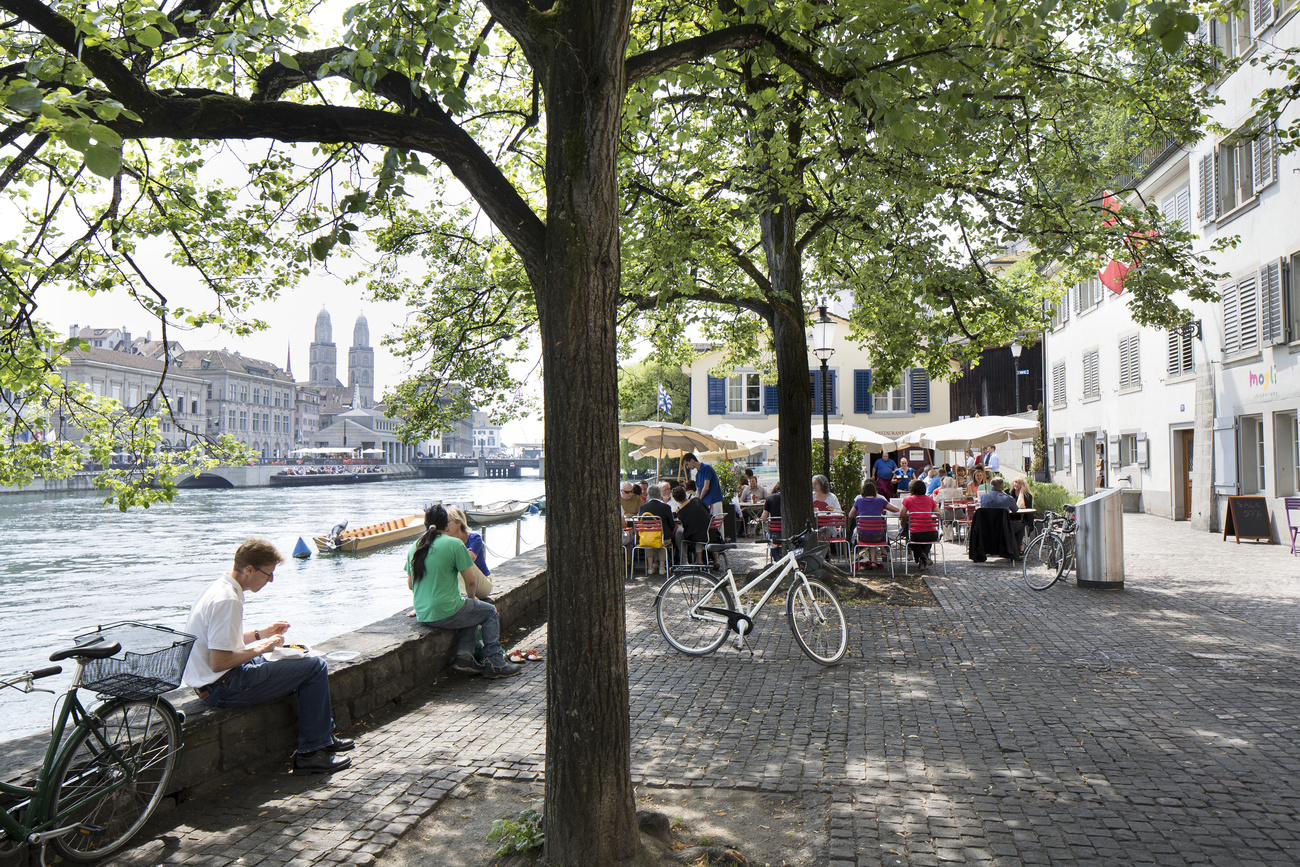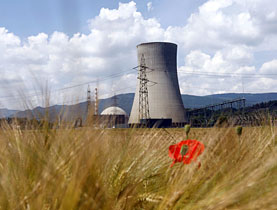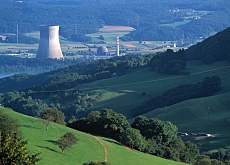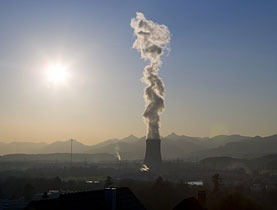Nuclear energy debate generates heat

Conflicting proposals to build new atomic power plants in Switzerland have created inevitable fears and divide - not just atoms - but also public opinion.
Energy providers Alpiq, Axpo and BKW Energie are bickering about how many new plants should be built and who should run them. But before that happens, they must first convince a sceptical public.
Nearly three years ago, the Swiss government decided that two new atomic energy plants were needed to cover a predicted power shortfall after 2020.
Alpiq (then called Atel) was the first company to submit a proposal in June that year, much to the annoyance of Axpo and BKW that also want to build. The two rivals have argued that they should be at the head of the queue because their plants will run out of steam first.
However, despite a recent public mellowing towards nuclear energy, there is still significant opposition on the grounds of safety. Any proposed new plant would have to first run the gauntlet of a popular initiative before it could be accepted.
The residents of canton Vaud will vote on Sunday on a proposal to keep a plant in Mühleberg, in neighbouring canton Bern, running indefinitely. The plant, which supplies energy to the canton, has a licence to operate until 2012.
The energy ministry is waiting for the outcome of the consultative vote before deciding whether to prolong the plant’s life.
Although the federal authorities will have the final say, local votes on this issue have hardly demonstrated overwhelming public support for nuclear power in Switzerland.
Third generation
However, Danny Roderick, senior vice-president of United States specialist energy firm GE Hitachi, insists that nuclear energy has found a new wind thanks to problems with Russian gas supplies and the abhorrence of greenhouse gases.
“The recognition that hundreds of plants have been able to produce energy safely, and without greenhouse emissions, has been very well received,” he told swissinfo.ch.
“Nuclear provides that core base load amount of generation that allows you to take your other renewables, such as wind or solar, and to use those more effectively. That gives you the greater energy security of not having to buy gas or coal on the days that the sun doesn’t shine or the wind doesn’t blow.”
GE Hitachi helped to build some existing Swiss nuclear plants and continues to service them. A company delegation was in Switzerland to present its new technology to the authorities and was keen to add its voice to the debate.
“The new generation of plants – generation 3 or 3+ – is as big of a step change from the old technology as from an old eight track tape player to an iPod,” Roderick said.
He added that improved safety features took away many dangers of human error and simplified the procedure of making electricity, stripping away pumps and parts that could malfunction.
In addition, GE Hitachi is developing a method of recycling waste material, reducing the life of dangerous isotopes to around 100 years while creating more electricity.
But while memories of accidents at Chernobyl and Three Mile Island in the US may be fading, they still remain in the back of people’s minds.

More
People’s initiative
Atomic opposition
A Swiss poll conducted a year ago found that 40 per cent of people were in favour of nuclear power (only seven per cent fully in favour) while 52 per cent were opposed (14 per cent fully opposed). While those figures may have changed by now, it appears certain that the construction of new nuclear facilities would be meet strong opposition.
Leo Scherer, senior nuclear campaigner at Greenpeace Switzerland, disagreed with the suggestion that nuclear power could be categorised as a renewable energy source alongside solar, hydro and wind.
“Nuclear energy needs uranium and that needs oil, coal or natural gas to produce,” he told swissinfo.ch.”This plan [to build new plants] is a dangerous distraction away from the real solutions [to providing energy in the future] from renewables.”
Other campaigners have pointed to the large amounts of concrete, steel and other materials needed to build a plant – all of which would result in more greenhouse gases. Scherer also questioned whether recycling waste material would also create harmful emissions.
“We already have the technology to meet future electricity needs in Switzerland through renewable energies. We have no need to build new nuclear plants,” Scherer said. “It is now only a question of politics.”
Matthew Allen, swissinfo.ch
Swiss voters accepted in 1957 a constitutional article on nuclear power.
Switzerland’s first commercial nuclear plant, Beznau I in canton Aargau, went on line in 1969, followed by four others until 1984.
Nuclear power came in for criticism during the 1970s, preventing the construction of another plant. The project was abandoned in 1988.
Swiss voters rejected demands to end the use of nuclear energy three times between 1979 and 1984. But the Three-Mile Island incident in the US and the Chernobyl catastrophe in Ukraine increased fears about nuclear security.
In 1990, voters approved a ten-year moratorium on the construction of new nuclear power facilities. In 1998, the government decided that Swiss nuclear plants should be shut down.
But in 2000, Switzerland’s new CO2 law gave nuclear power, perceived some as a clean source of energy, a second wind. Three years later voters refused a new moratorium or to abandon nuclear power, and in 2005, the new nuclear energy law confirmed that atomic energy is an option.
In February 2007, the cabinet decided to replace existing nuclear power plants and build gas plants to avoid an energy shortfall.

In compliance with the JTI standards
More: SWI swissinfo.ch certified by the Journalism Trust Initiative













You can find an overview of ongoing debates with our journalists here . Please join us!
If you want to start a conversation about a topic raised in this article or want to report factual errors, email us at english@swissinfo.ch.